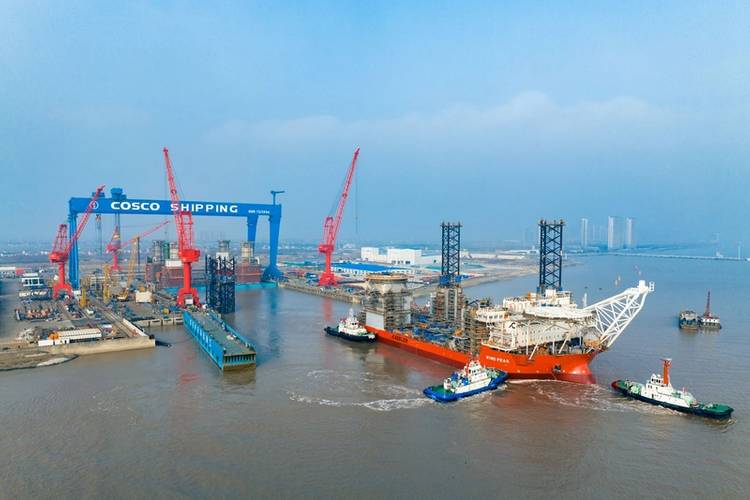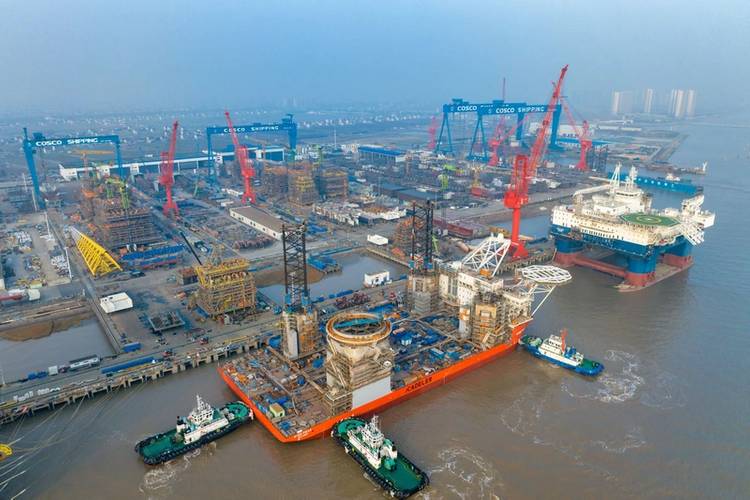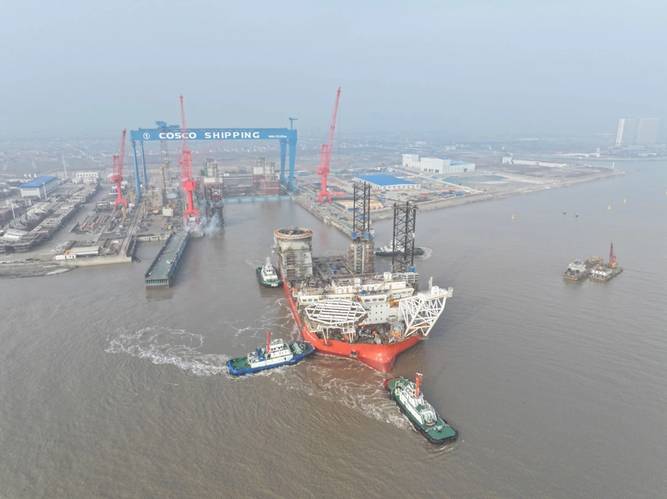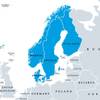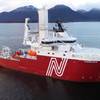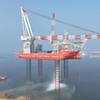Chinese Shipyard Launches Cadeler’s Newbuild Offshore Wind Vessel
Cosco Shipyard in China has launched Cadeler’s newbuild vessel Wind Peak, designed to be able to transport and install up to seven complete 15 MW offshore wind turbine sets per load.
The launching of Wind Peak is a critical milestone that marks the completion of the vessel’s hull, Cadeler said.
Leading up to the launch is two years of intricate engineering and 18 months of construction of the P-class vessel.
After the launching, the jacking legs and cranes will be installed onboard alongside various technical installations, according to Cadeler.
Then, commissioning and testing of all systems will be initiated. The sea trial is planned for mid-2024.
All ship systems will be tested by Cadeler in close collaboration with the classification society, the Danish offshore wind installation services company said.
Wind Peak is scheduled for handover to Cadeler in the third quarter of 2024.
“Thank you to everyone, Cadeler, partners, and investors who have contributed with remarkable efforts leading to the launch of Wind Peak,” Cadeler said in a statement.
In 2025, Cadeler is set to receive the second P-Class vessel named Wind Pace.
Both Wind Peak and Wind Pace are designed to operate at some of the most difficult sites around the globe and with the most advanced equipment in the industry.
The vessels will offer increased transit capacity, lowering the energy intensity of installation, reducing installation time and thereby lowering total cost of installing offshore wind farms.
With a deck space of 5,600 m2, a payload of over 17,600 tons and main crane capacity of above 2,500 tons at 53 meters, the two new cyber-secure vessels are expected to be ‘very attractive’ to the industry.
The vessels will be able to transport and install seven complete 15 MW turbine sets per load or five sets of 20+ MW turbines, cutting down the number of trips needed for each project, thus accelerating installation speed and minimizing the carbon footprint.
The vessels can accommodate 130 people, according to Cadeler.






